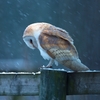An enormously influential biological exchange occurred when europeans landed in the americas, to the benefit and detriment of europeans and natives. old world-new world plant and animal exchange resulted in sugar and bananas crossing the atlantic while pigs, sheep, and cattle arrived in the americas. the transfer of european diseases had catastrophic repercussions: influenza, typhus, measles, and smallpox devastated the native american population. who wrote this book?
Answers (1)
Know the Answer?
Not Sure About the Answer?
Find an answer to your question 👍 “An enormously influential biological exchange occurred when europeans landed in the americas, to the benefit and detriment of europeans and ...” in 📗 History if the answers seem to be not correct or there’s no answer. Try a smart search to find answers to similar questions.
Search for Other Answers
You Might be Interested in
Which of the following were not one of the major cash crops for plantations? A.) Rice B.) Indigo C.) Tobacco D.) Sugarcane E.) Hemp F.) Cotton G.) Corn
Answers (2)
Which leader was put in jail for fighting apartheid in South Africa? Mao Zedong Nelson Mandela Mikhail Gorbachev F. W. de Klerk
Answers (1)
Why did Japan develop later than Great Britain?
Answers (1)
Which is NOT true about al Qaeda? * it is a terrorist group responsible for the 9/11 attacks it was created by Osama Bin Laden it was the ruling party of Afghanistan from 1996-2001 its objective is to rid Muslim countries of Western influence
Answers (2)
Around the world, and beginning in the 1830s in the U. S., the growth of cities accelerated A. as a result of a increase in the world's population. B. during the Industrial Revolution. C. during a major agricultural drought. D.
Answers (1)
New Questions in History
List the five basic of all government and explain why each ome is important
Answers (1)
What were the unique customs of the coahuiltecan
Answers (1)
How does the industrialization and labor affects the world that you live in today?
Answers (1)
How is Caliph defined? a. defender of the faithful c. ruler of the faithful b. commander of the faithful d. the one chosen by God
Answers (2)
Did andrew jackson's removal policy benefit native americans?
Answers (1)

